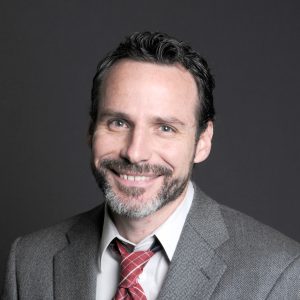Putting Transformative Learning Theory into Perspective

Chad Hoggan felt relieved when he first learned of Mezirow’s transformative learning theory in his master’s program. The learning theory that uses dramatic events as a means of challenging students’ thinking helped him process some of his own learning experiences as an adult. He’s been drawn to researching how and why people go through dramatic personal change ever since.
For nearly a decade, Hoggan — now an associate professor of adult, workforce, and continuing professional education in NC State College of Education’s Department of Educational Leadership, Policy, and Human Development — has studied military veterans, breast cancer survivors and, most recently, community college students. But his research and recommendations that provide clarity to the theory is his most popular work.
[spotlight-box label=”Another Top Hit for Hoggan” img=”” heading=”” cta=”Read the article” url=”https://journals.sagepub.com/doi/full/10.1177/0741713616674076″]“Transformative Learning as a Metatheory: Definition, Criteria, and Typology” is not the only popular article on Adult Education Quarterly that Hoggan has published. An article he wrote with Kaisu Mälkki and Fergel Finnegan, “Developing the Theory of Perspective Transformation Continuity, Intersubjectivity, and Emancipatory Praxis,” is on Adult Education Quarterly’s Top 3 Most Read Articles list for the past six months.[/spotlight-box]
His article “Transformative Learning as a Metatheory: Definition, Criteria, and Typology” is Adult Education Quarterly’s most cited article in the past three years and it’s fourth most read article in the past three months. Since its publication online in November 2015, the article has amassed more than 2,000 downloads and 18 citations.
In the article, Hoggan details why it is important for scholars and students alike to gain clarity around the terms associated with transformative learning theory and why scholars should avoid using the theory as a one-size-fits-all approach to adult education.
“I developed a typology of transformative learning outcomes and criteria so researchers could evaluate learning experiences, and use the theory as it was intended,” Hoggan said. “If we can talk about how a learning experience is transformative through deep, broad and permanent characteristics, we’re all using the same language.”
3 Takeaways from Hoggan’s Article
- Transformative learning theory should be treated as an analytic metatheory to prevent compromising Mezirow’s original theory and diluting its importance.
- Use a typology as an analytical tool when looking at dramatic learning experiences to help identify those learning experiences as being truly transformative and causing direct change.
- Apply a common vocabulary of terms related to transformative learning theory to describe findings and communicate them clearly with researchers across multiple disciplines.
[button]Read the article[/button]
What’s Next
Hoggan just finished writing a book for practitioners with a working title Transformational Learning in Community College Students. It focuses on how community colleges can change and adapt to the transformative learning needs of its historically underserved students to ensure they complete their program of study. Harvard Education Press is slated to publish the book next fall.
- Categories:


